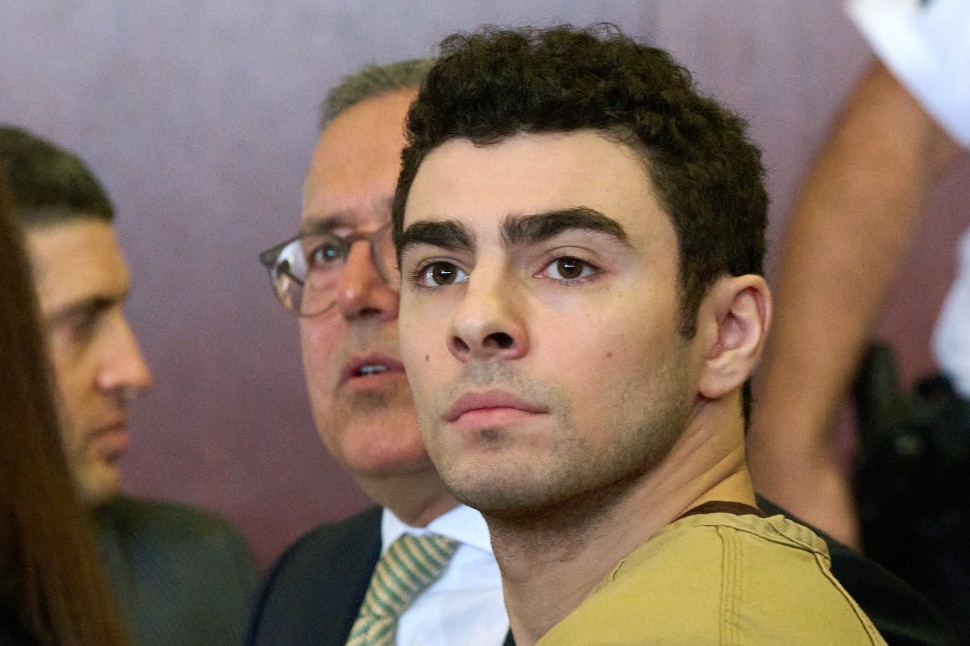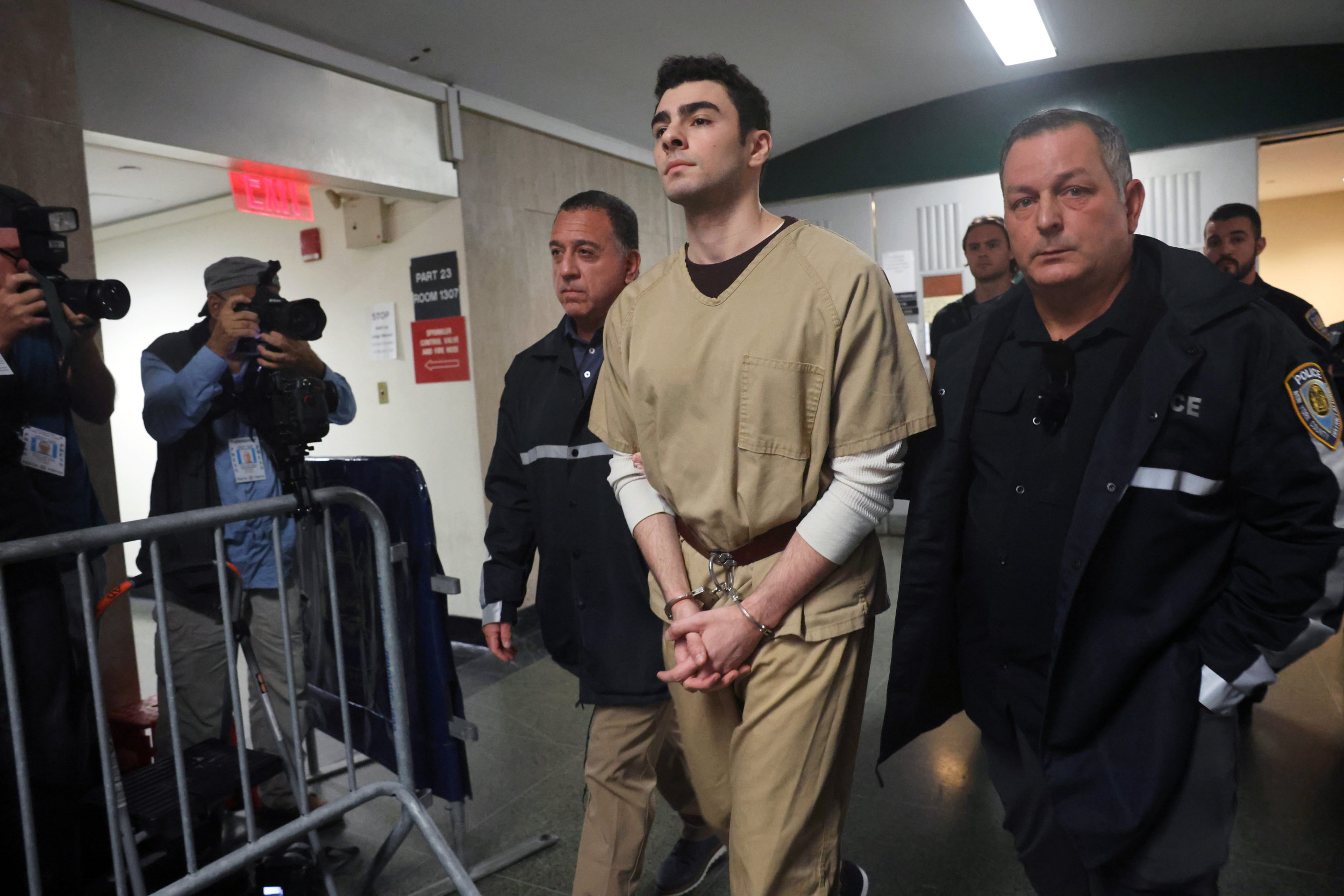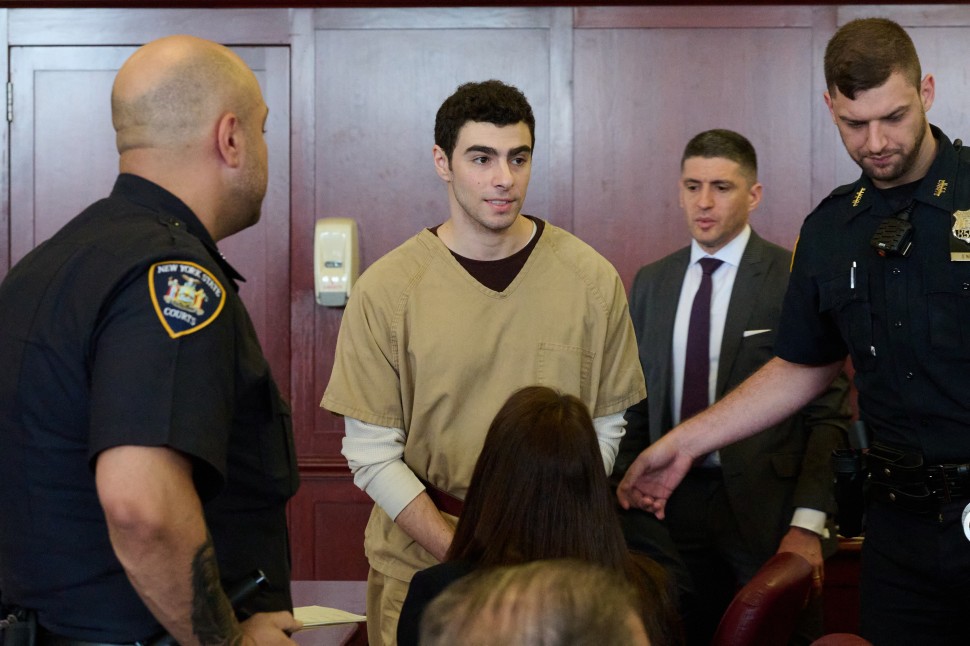
Luigi Mangione returned to a Manhattan courtroom on September 16, 2025, marking his first state court appearance in six months. Shackled, clad in beige prison garb, and noticeably subdued, the 27-year-old defendant faced a pivotal hearing that reshaped one of the most closely watched cases in recent New York history.
Mangione stands accused of fatally shooting UnitedHealthcare CEO Brian Thompson outside a Midtown Manhattan hotel in December 2024. Prosecutors had charged him with murder as an act of terrorism, alleging that his actions were politically motivated and intended to intimidate the public. But in a dramatic ruling, Justice Gregory Carro dismissed two terrorism-related murder counts, saying prosecutors had not met the legal threshold.
A Courtroom Reappearance
Mangione's return to court was brief. He entered through the center aisle, wrists and ankles shackled, escorted by officers. His hair appeared freshly trimmed, his face calm, even impassive. He did not speak during the hearing, which lasted less than ten minutes. Still, his presence drew a palpable reaction.


A group of supporters sat in the courtroom gallery, some wearing coordinated colors and T-shirts with messages of solidarity. When Mangione glanced in their direction, a few nodded in return. Outside, people gathered to follow the proceedings, and when news broke that the terrorism charges were dismissed, murmurs turned into cheers.
It was the first time the public had seen Mangione in person since February, and the spectacle underscored how the case has moved beyond the realm of a standard criminal prosecution into something larger, a cultural flashpoint that has sparked debates over terrorism law, corporate power, and justice.
Why Terrorism Charges Fell Apart
Justice Carro's decision hinged on the narrow definition of terrorism in New York State law. To qualify, the prosecution needed to prove that Mangione's intent was to "intimidate or coerce a civilian population." Evidence presented to the grand jury included a notebook prosecutors described as a manifesto, as well as ammunition with phrases like "delay, deny, and depose," interpreted as a critique of health insurance practices.
But Carro ruled that while Mangione's writings and rhetoric revealed hostility toward the healthcare system, they did not rise to the level of terrorism under the law. The judge concluded that prosecutors had stretched the definition too far. As a result, charges of first-degree murder as a crime of terrorism and second-degree murder as related to terrorism were dismissed.

The ruling was a victory for Mangione's defense team, who have long argued that the state overreached by framing the killing as an act of terror. Still, the most serious accusation remains: second-degree murder, a charge that could keep Mangione behind bars for decades if convicted.
The Federal Dimension
Even with state terrorism charges off the table, Mangione's legal troubles are far from over. Federal prosecutors continue to pursue their own case, which includes charges of murder, stalking, and weapons violations. The U.S. Attorney General has already indicated that the Justice Department will seek the death penalty if Mangione is convicted on federal counts.
This overlapping state and federal strategy has raised questions about double jeopardy and fairness. Mangione's lawyers argue that fighting two prosecutions at once is inherently unjust. So far, courts have rejected those claims, noting that state and federal systems operate independently.
The next state pretrial hearing is scheduled for December 1, 2025, while the federal trial timeline remains in motion.
Originally published on Latin Times




